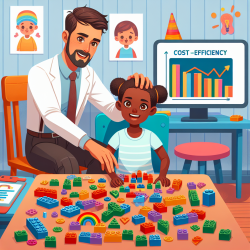In the realm of special education, funding agencies play a crucial role in ensuring that students with unique needs receive the support and resources necessary for their development. As the landscape of education evolves, one innovative approach that has emerged is online therapy, a powerful tool that has the potential to revolutionize the way we deliver services to students. This blog explores the transformative impact of online therapy, particularly online speech therapy, on special education and aims to inspire funding agencies to consider its benefits.
The Growing Need for Accessible Therapy Services
Special education programs often face challenges in providing consistent and high-quality therapy services to students. Geographic barriers, limited availability of qualified therapists, and budget constraints can hinder the delivery of essential services. These obstacles can leave students feeling lost and underserved, ultimately affecting their academic and social development.
What is Online Therapy?
Online therapy, also known as teletherapy or telepractice, involves delivering therapeutic services through digital platforms. This approach leverages technology to connect therapists with students, regardless of their physical location. For instance, online speech therapy allows speech-language pathologists to work with students remotely, providing tailored interventions that address individual needs.
Benefits of Online Therapy in Special Education
Online therapy offers numerous advantages that can significantly enhance special education programs:
- Accessibility: Online therapy breaks down geographic barriers, making it possible for students in remote or underserved areas to access high-quality services.
- Consistency: Regular sessions can be scheduled without the disruptions caused by therapist shortages or travel constraints, ensuring that students receive continuous support.
- Cost-Effectiveness: By reducing the need for physical infrastructure and travel, online therapy can be a more budget-friendly option for schools and funding agencies.
- Flexibility: Sessions can be scheduled at convenient times, accommodating the diverse needs of students and their families.
- Engagement: Interactive digital tools and resources can make therapy sessions more engaging and effective for students.
Success Stories: Real-World Impact
Numerous schools have already embraced online therapy and witnessed remarkable outcomes. For example, a rural school district in the Midwest struggled to find a qualified speech-language pathologist for years. After partnering with an online therapy provider, they were able to offer consistent speech therapy telepractice to their students. As a result, students made significant progress in their communication skills, boosting their confidence and academic performance.
How Funding Agencies Can Support Online Therapy
Funding agencies have the power to drive positive change in special education by supporting the implementation of online therapy programs. Here are a few ways they can make a difference:
- Provide Grants: Offer grants specifically for schools to invest in online therapy platforms and training for staff.
- Promote Awareness: Educate schools and districts about the benefits and effectiveness of online therapy through workshops, seminars, and informational materials.
- Collaborate with Providers: Partner with reputable online therapy providers to ensure that schools have access to high-quality services.
- Monitor and Evaluate: Establish systems to monitor the progress and outcomes of online therapy programs, ensuring accountability and continuous improvement.
Conclusion
As we strive to provide the best possible education for students with special needs, it is essential to embrace innovative solutions like online therapy. By leveraging technology, we can overcome barriers and deliver consistent, high-quality services that empower students to reach their full potential. Funding agencies play a pivotal role in this transformation, and their support can make a profound difference in the lives of countless students. Together, we can unlock the potential of every child and create a brighter future for all.










